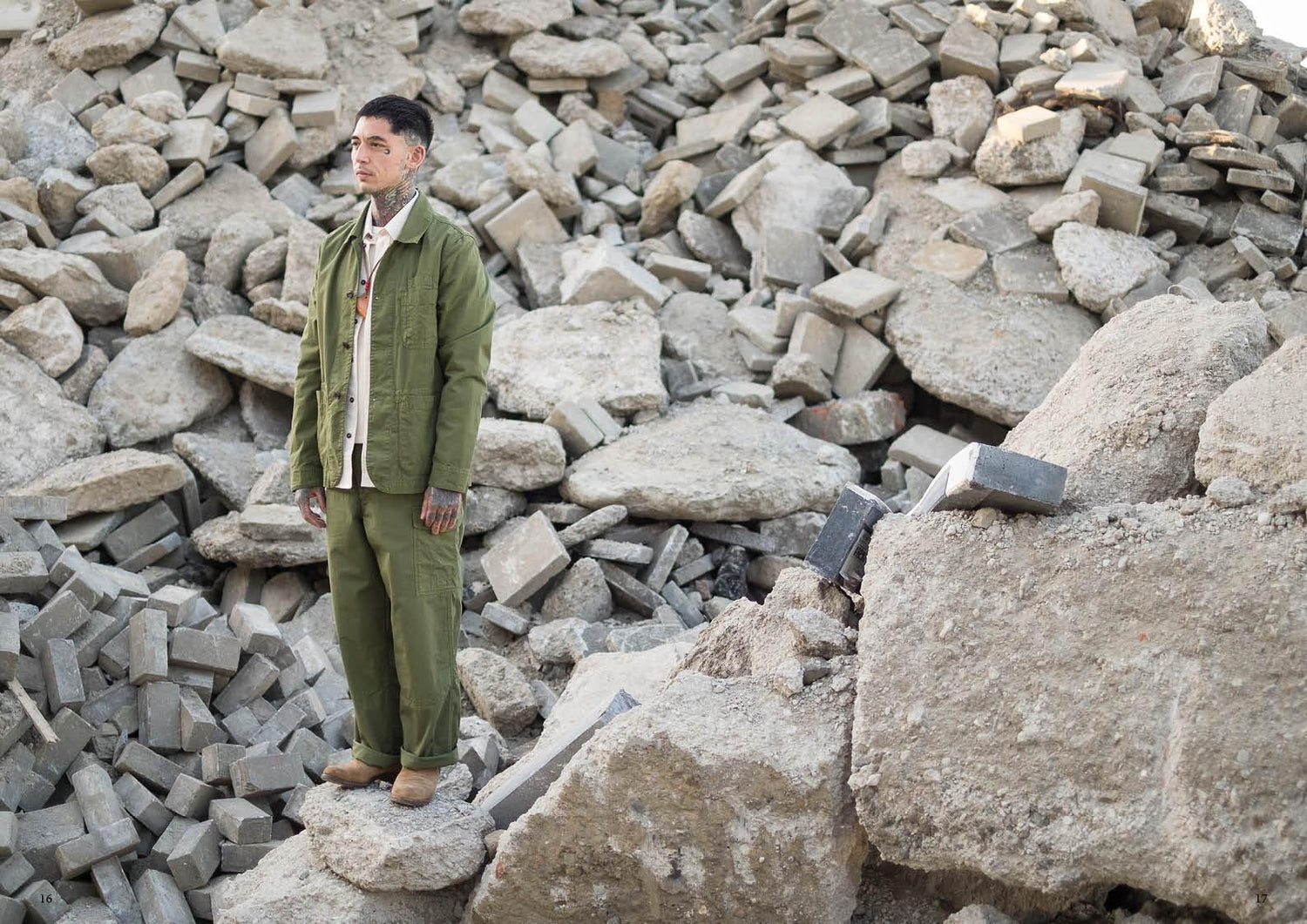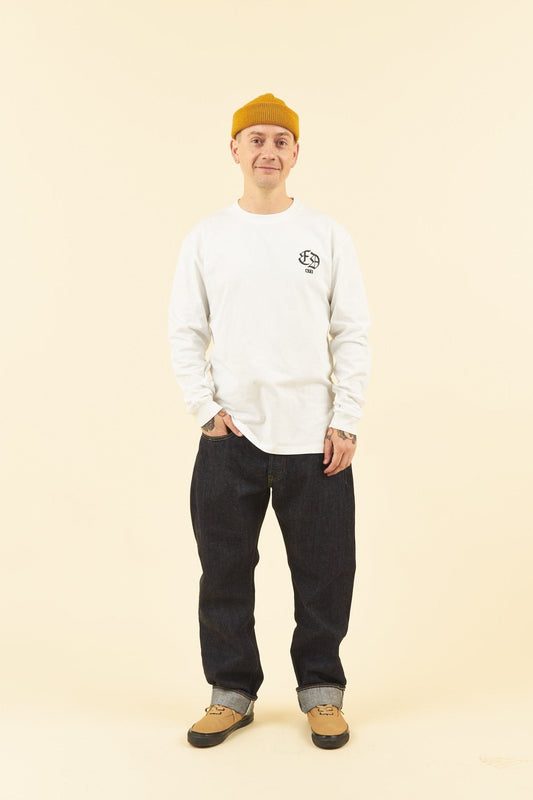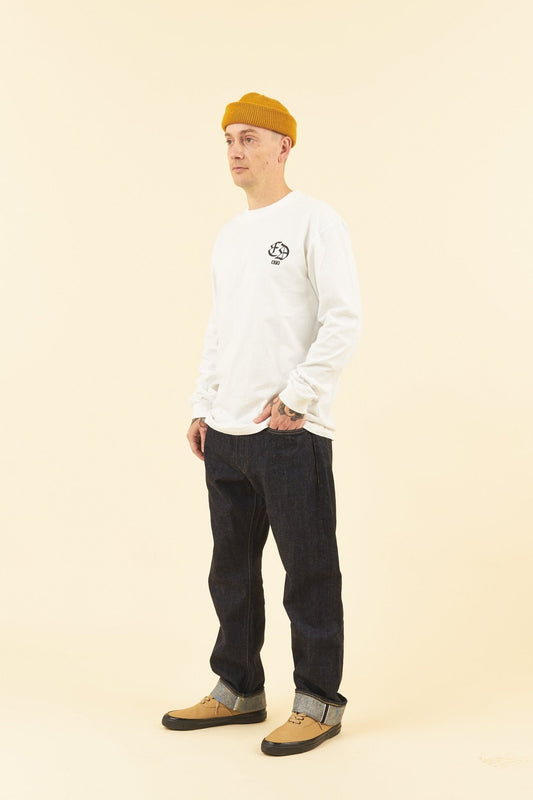Collection: Eat Dust
-
Eat Dust Printed L/S Tee - White
Vendor:Eat DustRegular price ₩116,000 KRWRegular priceUnit price / per₩169,000 KRWSale price ₩116,000 KRWSale

Eat Dust
Eat Dust is a Belgian clothing brand founded in 2010 by longtime friends Rob Harmsen & Keith Hioco in the city of Antwerp.
Both were raised on a diet of skateboarding and a healthy dose of punk rock, which instilled a DIY attitude in them.
At the heart of Eat Dust lies Rob & Keith’s headstrong and rebellious nature. They merge classic menswear and their love for denim with a wide range of influences, drawing from old Western styles, military wear, Americana, motorcycling, skateboarding, and musical subcultures.
Eat Dust was founded on the principle of an uncompromising vision and the pursuit of quality, integrity, and originality. This includes taking a stand against many of the appalling practices of today’s fashion industry.
All production, sourcing, and fabric development is retained in Europe because Eat Dust attaches great importance to craftsmanship, tradition, expertise, human dignity, and respect.
Frequently Asked Questions
Where is Eat Dust clothing made?
Eat Dust clothing is typically made in Portugal at ethically and environmentally certified factories. Eat Dust sources incredible fabrics from Japan, United Kingdom, Belgium and other European countries.
How does Eat Dust clothing fit?
Eat Dust clothing fits more generously than Japanese denim and streetwear brands. We recommend buying your true size for a relaxed fit, or sizing down for a more tailored look. Please ask us for any questions you have about the fit of a particular garment.
Is Eat Dust clothing ethically made?
Eat Dust Clothing is committed to ethical production practices and sustainability. The brand uses high-quality materials such as organic cotton and recycled fabrics, and their manufacturing process is focused on minimizing waste and reducing their carbon footprint. Their clothes are made in Europe under fair labor conditions, with a strong emphasis on quality and durability.


